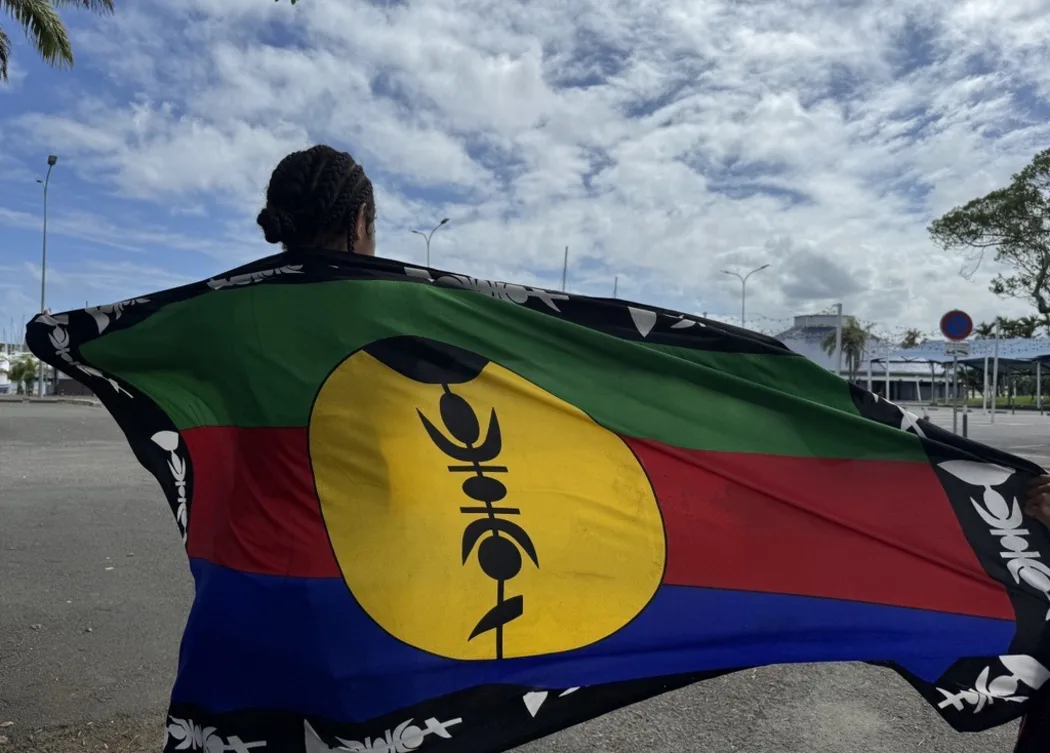France’s Ambassador to the Pacific says criticisms of the country’s actions in New Caledonia are based on misinformation.
The Ambassador, Véronique Roger-Lacan, also rejected suggestions that the Pacific Islands Forum could “mediate” between French authorities and pro-independence parties.
French security personnel maintain a heightened presence in New Caledonia as authorities remain wary that violence could flare while France hosts the Olympic Games in Paris.
France has sharply rejected accusations that it undermined decolonisation in New Caledonia and says it’s still deciding when a high-level Pacific delegation will be permitted to visit the territory.
The Pacific Islands Forum has been pressing Paris to allow the leaders of Fiji, Tonga and Cook Islands to visit the French territory — which is still grappling with unrest in the wake of riots in May — ahead of the PIF leaders meeting in the Tongan capital Nuku’alofa late next month.
Both the Melanesian Spearhead Group and New Zealand’s Foreign Minister Winston Peters have also ramped up criticism of the third and final referendum in New Caledonia, where loyalists won an overwhelming victory after a boycott by pro-independence voters.
Peters said last week that the 2021 vote was against the “spirit” of the law, and that the hugely reduced turnout inflicted a “democratic injury” on New Caledonia.
But the French Ambassador to the Pacific, Véronique Roger-Lacan, told the ABC that many of the criticisms of France contained “misinformation”.
The Ambassador said that French authorities had been blindsided by the boycott call before the referendum and insisted that the low turnout did not undermine the validity of the result.
“Everything was ready and then 15 days before the vote the [pro-independence coalition] Union Calédonienne requested to postpone,” she said.
“The UC decided to boycott the vote. That’s their decision but it does not mean the referendum was not a valid response to the question [of independence].”
Pro-independence parties said in 2021 they decided to boycott the vote because a surge in COVID cases made campaigning impossible, while accusing France of disregarding customary law which mandated 12 months of mourning for those who lost their lives in the pandemic.
But Roger-Lacan suggested that argument was disingenuous, saying that many pro-independence voters from the indigenous Kanak community still participated in elections early in 2022.
“I remind you that three months after the vote, local elections were held and everyone turned up to vote, even though that year-long period was not yet concluded,” she said.
The Ambassador signalled that France would agree to host the PIF delegation saying there was a “relationship of trust and cooperation between France and the Pacific Islands Forum” which she called a “cornerstone of regional cooperation”.
“We are always open to explaining the situation as we always have done. We can discuss ways and means to carry out this exchange of views with partners in the region,” she told the ABC.
But the timing of the trip remains up in the air.
The Pacific Islands Forum says the “collective expectation” of Pacific leaders is that the visit will happen before the critical PIF leaders meeting in late August.
Roger-Lacan said the French President Emmanuel Macron would have to decide whether that was possible.
She also rejected suggestions that the Pacific Islands Forum could “mediate” between French authorities and pro-independence parties, saying that was impossible because New Caledonia remains part of France.
“There can be no mediation between France and New Caledonia. It doesn’t make sense,” she told the ABC.
“It is like saying there should be mediation between France and Provence.”
The Melanesian Spearhead Group (MSG) issued a statement last week criticising the way France pressed ahead with the third referendum, calling it a “forceful and unilateral decision by the French state”.
It also called for a fourth vote on the question of independence.
But the ambassador rejected accusations that France had neglected the rights of people in New Caledonia, saying the final vote was both free and fair.
“Self-determination is at the heart of our policy and we have never departed from this principle with New Caledonia,” she said.
“We are trying to identify an institutional future for New Caledonia for all citizens.”
France has ramped up security in New Caledonia, sending around 3,000 additional police and armoured vehicles to the territory in the wake of unrest which has already claimed 10 lives since May.
Violence flared again last month after the French authorities sent seven pro-independence activists accused of orchestrating the deadly riots to detention centres in France.
The situation has calmed down since then, but last week two Catholic churches were torched, while a prominent Kanak monument was desecrated over the weekend.
Authorities in the territory are also wary that violence could flare over the coming two weeks as France hosts the Olympic Games in Paris.














